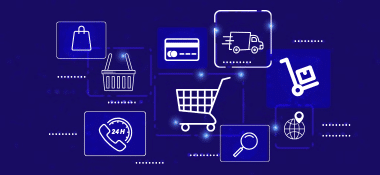Let’s be honest, measuring advertising effectiveness can feel a little like herding cats. You’ve got ad budget goals to hit, media spend to wrangle, and stakeholders breathing down your neck for results yesterday. So how do you measure whether your campaigns are actually pulling their weight?
Spoiler: Efficiency lives where performance meets smart ad budgeting—and that’s where things get interesting.
Why campaign efficiency can be tough to pin down
Before we get into tactics, let’s pause for a second. Because measuring campaign efficiency isn’t just challenging—it’s often downright messy. Data lives in too many places. KPIs compete for attention. Channels don’t always play nice.
It’s tough to get a single, unified view of what’s working, let alone prove it in a clean, confident slide for your next campaign recap. So if you’ve ever stared at a dashboard wondering, “Wait, is this good? Should I change something?” you’re not alone.
But good news: There’s a smarter way to get clarity. Let’s get into it.
Start with what matters: Outcomes
Before diving into dashboards, start with your objective. What was your campaign trying to do—drive conversions, boost product discovery, build brand awareness? Not every campaign has the same goal, so not every metric should carry the same weight.
To measure efficiency, you’ve got to tie your outcomes to where you’re playing in the funnel.
- Upper funnel: Discovery mode – This is where you’re reaching new audiences and building awareness. Efficiency here is all about attention. Look at reach, viewability, video completion rates, brand lift, and early engagement signals like time on site or scroll depth post-ad exposure.
- Middle funnel: Consideration central – Now you’re keeping that interest alive. Focus on click-through rate, product page views, add-to-cart behavior, return visits, and session duration. You’ll also want to track engagement by creative or placement, plus how users interact across multiple touchpoints.
- Lower funnel: Conversion zone – This is where the action happens, and where your ad budget needs to pull its weight. Look at return on ad spend, cost per acquisition, conversion rate, and cost per incremental sale to understand whether your spend is actually delivering results. Add in recency and frequency metrics, last-touch performance, and retargeting effectiveness to sharpen your strategy. At this stage, campaign effectiveness analysis comes down to return. Your budget should reflect that.
Bottom line? Funnel alignment matters. Measuring campaign efficiency isn’t just about tracking performance—it’s about tracking the right performance, at the right stage, with the right metrics.
Don’t forget about media quality
Pay attention to how your ad media spend is allocated. Efficiency isn’t just about how much you spend. It’s about where you spend it.
If you’re investing in environments with zero shopper intent, you’re paying more for less. High-quality media, like commerce media placements in high-intent environments, helps your ads get noticed and acted on.
Attribution models shape how you measure
Attribution can quietly change everything. Different attribution models—last-click, linear, time decay, or data-driven—can dramatically change how you interpret results and optimize your ad budget.
Use last-click, and you might overvalue lower-funnel tactics. Use a multi-touch model, and you’ll get a clearer picture of how all touchpoints contribute across the funnel.
In short, your attribution model affects your entire efficiency analysis. Make sure it aligns with your goals—and helps you make smarter decisions, not skewed ones.
Flexible ad solutions with smarter reporting
Tracking advertising campaigns across platforms isn’t always straightforward. Each one collects data differently, with different goals and metrics. It’s easier when you’re working from a consistent measurement base or have tools that help you compare results more effectively.
That’s why flexible reporting matters. Criteo’s Commerce Growth platform brings targeting, creative, optimization, and measurement together in one place—and lets you connect data from your preferred attribution partner. With our direct Google Analytics 4 integration, you also get a clear view of performance across channels, without the manual lift.
Drive more efficient campaigns from start to finish
Campaign efficiency doesn’t have to be complicated. When your ad budget and measurement tools work in sync, you get sharper insights, stronger results, and less wasted spend.
And with a flexible platform that covers everything from audience targeting to real-time analytics (hi, we’re Criteo), measuring marketing campaign effectiveness becomes a whole lot easier—and a lot more actionable.
Want help making your next campaign more efficient? Let’s talk.

















